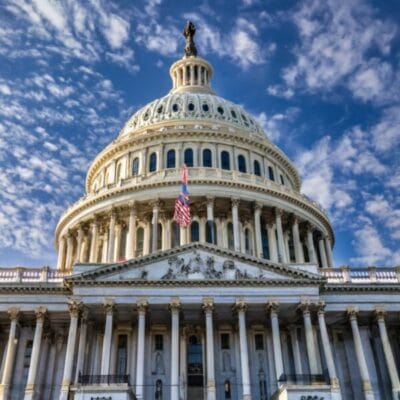Several contemporary issues and challenges face Congress in the United States.
Here are some key contemporary issues and challenges facing Congress:
1. COVID-19 Pandemic:
- Congress has been grappling with responses to the ongoing COVID-19 pandemic, including economic relief packages, vaccination distribution, public health funding, and measures to address the economic impact on individuals and businesses.
2. Infrastructure Investment:
- Infrastructure is a key policy area, with discussions focusing on the need for substantial investment in upgrading and modernizing the nation’s infrastructure, including roads, bridges, public transit, broadband, and clean energy.
3. Climate Change and Environmental Policies:
- Congress faces challenges related to addressing climate change, reducing greenhouse gas emissions, and developing comprehensive environmental policies. This includes debates on energy transition, conservation efforts, and international cooperation.
4. Voting Rights and Election Reform:
- Issues related to voting rights, election security, and electoral reform have been prominent. Debates involve access to voting, gerrymandering, campaign finance, and efforts to strengthen the democratic process.
5. Racial and Social Justice:
- Congress is addressing issues related to racial and social justice, including police reform, criminal justice reform, equity in healthcare and education, and addressing systemic racism in various sectors.
6. Immigration Policies:
- Comprehensive immigration reform remains a challenge, with discussions on pathways to citizenship, border security, DACA (Deferred Action for Childhood Arrivals), and addressing the status of undocumented immigrants.
7. Healthcare Policy:
- Healthcare policy discussions include efforts to expand access, control healthcare costs, and address disparities. The Affordable Care Act (ACA) and potential reforms are ongoing areas of focus.
8. National Security and Foreign Policy:
- Congress plays a crucial role in shaping national security and foreign policy. Key issues include international relations, military funding, responses to global threats, and addressing challenges in regions such as the Middle East and Asia.
9. Technology and Privacy:
- As technology continues to advance, Congress is faced with challenges related to privacy, data protection, antitrust concerns, and regulating emerging technologies such as artificial intelligence and cryptocurrency.
10. Fiscal Policy and Budgeting:
- Congress regularly addresses fiscal policy, including budgeting, appropriations, and discussions around the national debt. Debates often involve balancing spending priorities and addressing long-term fiscal sustainability.
11. Gun Control and Violence Prevention:
- Efforts to address gun violence and enact gun control measures are ongoing issues, with discussions around background checks, assault weapons bans, and measures to prevent mass shootings.
12. Pandemic Preparedness and Public Health Infrastructure:
- Lessons learned from the COVID-19 pandemic have prompted discussions on enhancing pandemic preparedness, strengthening public health infrastructure, and ensuring a coordinated response to future health crises.
13. Cybersecurity:
- The increasing frequency and sophistication of cyber threats pose challenges for Congress in crafting policies to enhance cybersecurity, protect critical infrastructure, and address potential cyberattacks.
14. Social and Economic Recovery:
- Post-pandemic recovery efforts involve considerations for social and economic recovery, including job creation, support for small businesses, and addressing inequalities exacerbated by the pandemic.
15. Political Polarization and Legislative Gridlock:
- The political polarization within Congress poses a challenge to passing bipartisan legislation. Overcoming legislative gridlock and fostering cooperation on critical issues remains an ongoing challenge.
Conclusion:
These issues reflect the complex and multifaceted nature of the challenges facing Congress today.
Addressing these challenges requires bipartisan cooperation, strategic policymaking, and responsiveness to the evolving needs and priorities of the American people.
It’s important to note that the political landscape may have evolved and new issues may have emerged.



